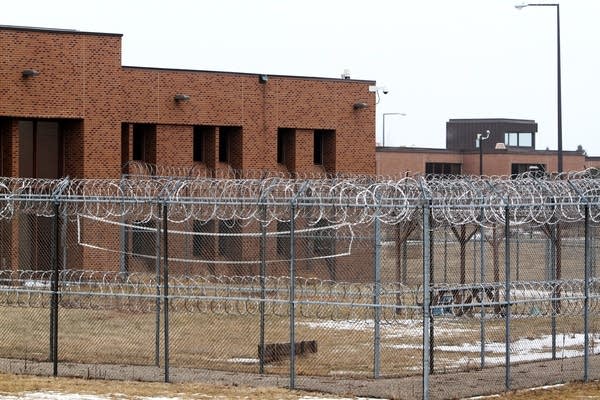Report: Security Hospital staff failed to protect patients

A state investigation released Tuesday found that staff members at Minnesota Security Hospital failed to adequately supervise patients on the January evening that authorities say one patient assaulted and killed another in his cell.
The state Department of Human Services fined the hospital $1,000 in connection with the incident.
On Jan. 22, guards found patient Michael Francis Douglas, 41, badly injured in his cell. Douglas was pronounced dead about a half hour later. Another patient, Darnell Dee Whitefeather, 32, has been charged in his murder and is awaiting trial in jail.
The Minnesota Security Hospital houses patients who are committed for being mentally ill or dangerous. The assault on Douglas occurred in unit 800, a crisis unit for patients with "significant aggressive or unsafe behaviors," according to the investigation by the DHS' Office of the Inspector General.
Create a More Connected Minnesota
MPR News is your trusted resource for the news you need. With your support, MPR News brings accessible, courageous journalism and authentic conversation to everyone - free of paywalls and barriers. Your gift makes a difference.
Police allege that Whitefeather went into Douglas' cell after dinner and punched him in the face, knocking him to the ground. Police said Whitefeather then "stomped" on Douglas' head multiple times.
The facility's rules state that guards were to check on the status of every patient in the unit every hour. Patients told the investigator that guards did not make rounds in the hours after dinner when the assault occurred, even though the guard responsible for maintaining the records reported that hourly rounds were made.
"[A]t least one other patient was aware that these individuals had fought. Yet despite seven staff on duty serving 14 patients, it was likely that 1-1/2 hours passed before staff were aware that a patient was lying on the floor, dying, in this locked living unit," according to a letter to hospital officials from the Office of the Inspector General.
The security guard who apparently neglected to make the rounds was not automatically disqualified from providing direct care to patients, but will be disqualified if there is another substantiated case of maltreatment.
Some patients reported that staff members spent much of their time behind a security desk or socializing with one another, rather than in the presence of the patients. In an internal assessment by the hospital, staff members said they spent time in the office because they feared for their safety.
The report also found that the hospital is challenged by the physical condition and design of the buildings. The state Legislature this session awarded the hospital $56 million to redesign the facility to make it safer for staff and patients.
But the report found that a number of other issues also contributed to the hospital's failure.
"However, while the deficits in the physical environment have certainly contributed to the challenges at this facility, there remain significant issues directly related to the personnel, education, training, and leadership," it said.
The facility has had a troubled history. The state inspector general issued a report last year that found patients were maltreated in two cases. In one case in August 2012, a patient banged his head against a concrete wall for three hours without staff intervening. Another patient who suffered from seizures didn't receive medical treatment until four hours after having a stroke.

The hospital has also been mired by administrative chaos. In early 2012, hospital administrator David Proffitt resigned amid allegations he created a hostile work environment. Carol Olson now heads up the hospital.
Citing the investigation's findings, the Department of Human Services will extend the facility's conditional licensing status for another two years, until Dec. 22, 2016. DHS officials placed the facility on conditional status in December 2011 after a series of incidents involving staff maltreatment of patients.
Department of Human Services Commissioner Lucinda Jesson said she believes that the culture of the hospital is changing for the better, but that she needs to see quicker progress.
"We really need a tidal wave of training, a more enhanced supervision in all the shifts, especially in that crisis unit," Jesson said. "And we need more support from management. To read that some management and supervisors are not on board with this new approach is troubling to me."
Under the conditional license, the hospital will add mentors trained in hospital policy and experienced in "person-centered thinking and trauma-informed care" to each shift in the crisis unit to coach staff. It also requires that managers and staff attend a two-day training on patient care and that staff provide better documentation of interactions with patients.